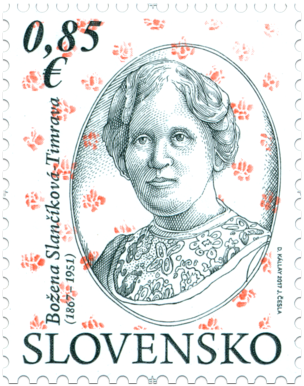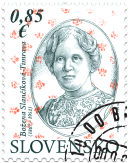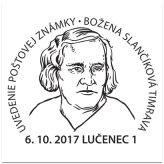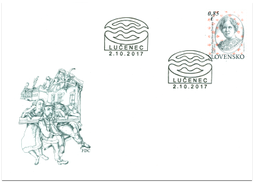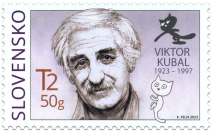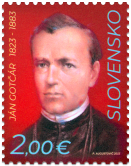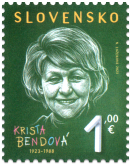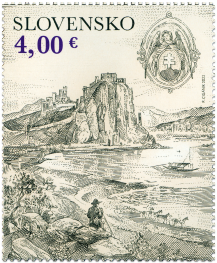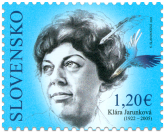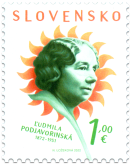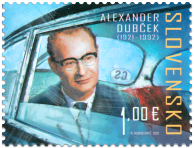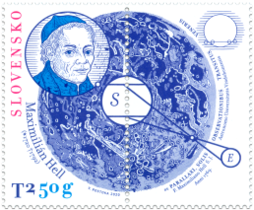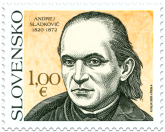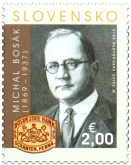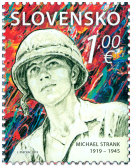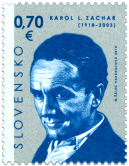641 Date of issue
02.10.2017 Face value
0.85 € Sell price
0.85 €
Timrava, born Božena Slančíková (October 2, 1867 Polichno – November 27, 1951 Lučenec) − a prosaist, dramatist and a prominent representative of late realism. In her first short story, Who to Marry? (Za koho ísť?) (1893), already she polemicized with the sentimental depiction of love in contemporary writing. Taking an ironic step back, she thematized the search for a “good match” in marriage. Even in her later prosaic writings, the depiction of relationships with men led to the loss of illusions and disappointment for her female protagonists. As though in this way the author kept reassuring herself that her choice of a life alone was correct.
In her novels, written between 1896 and 1900 (Assistant (Pomocník), Difficult Situation (Ťažké položenie), In Vain (Tak je darmo), Too Late (Pozde), Unloved (Nemilí), Ball (Bál), Struggle (Boj)), she introduced a psychologically detailed type of female protagonist with hitherto unusual feelings of indeterminate sadness and moodiness. This extraordinary creative period was temporarily interrupted by a scandal related to her novella Experience (Skúsenosť) in which she depicts the nationalist environment in an unflattering manner. For this reason when it was published in Slovak Views (Slovenské pohľady) (1902), some parts of the text were omitted or changed.
The following years were a period of creative exploration for Timrava. Novellas Without Pride (Bez hrdosti) (1905) and Great Happiness (Veľké šťastie) (1906) are among the most important novellas in her entire works. They are extraordinary in their high degree of subjective engagement of the female protagonist in matters of love. A monumental debate of life and death is the subject of a novella from the rural environment, Vanity All (Márnosť všetko) (1908). The Ťapák Family (Ťapákovci) (1914) represents the height of her mature creative period. In this work, she depicts the end of a social epoch in a model representation.
The antiwar novella, Great War Heroes (Hrdinovia) (1918), was written as a competition entry in which she tried to meet expectations which consequently weakened her artistic convincingness. A novella on human weakness and suffering, The Death of Paľo Ročka (Skon Paľa Ročku) (1921), is a deep work. The novel, Everything for the Nation (Všetko za národ) (1926), is a polemic from a fully-fledged author with the Martin concept of literature and nation. In the novellas, Two Epochs (Dve doby) (1936) and The Deluge (Záplava) (1938), she ironically depicts the social issues related to the changed conditions in the new republic. Occasionally, she also wrote plays for the theatre, however they were not of the same quality as her prosaic writings: Poor Family (Chudobná rodina) (1921), Peacock-girl (Páva) (1923), Reply (Odpoveď) (1934).
Marcela Mikulová
© 2024 POFIS - Postal philatelic service. All rights reserved

